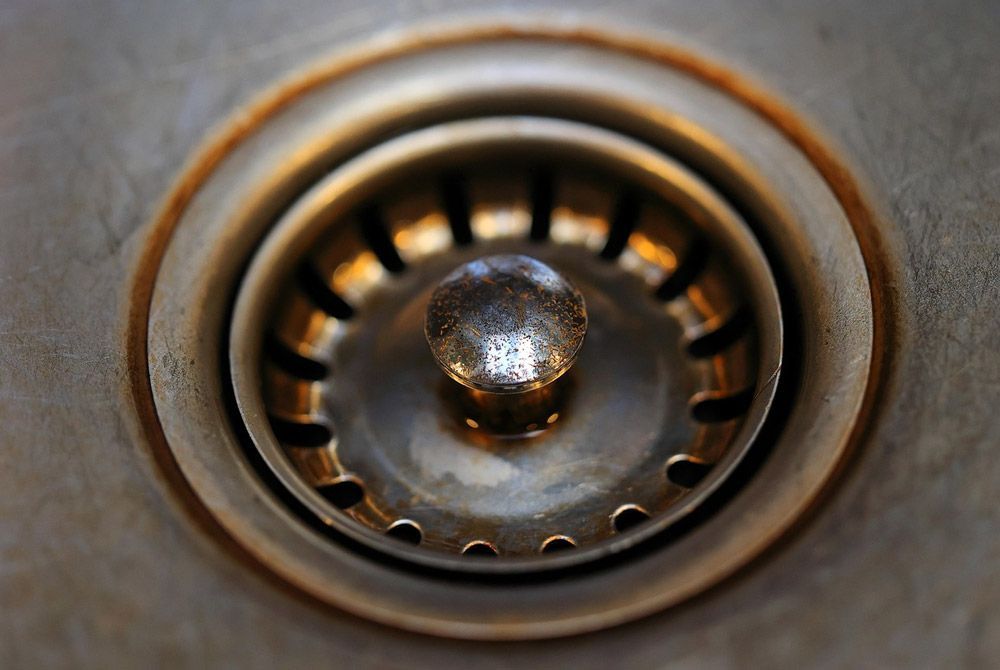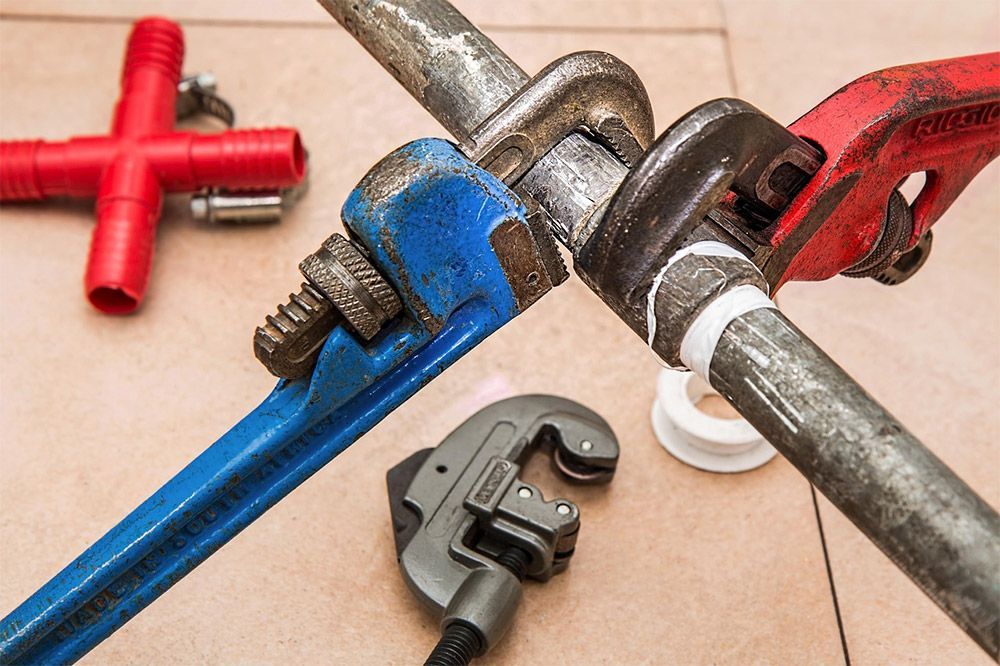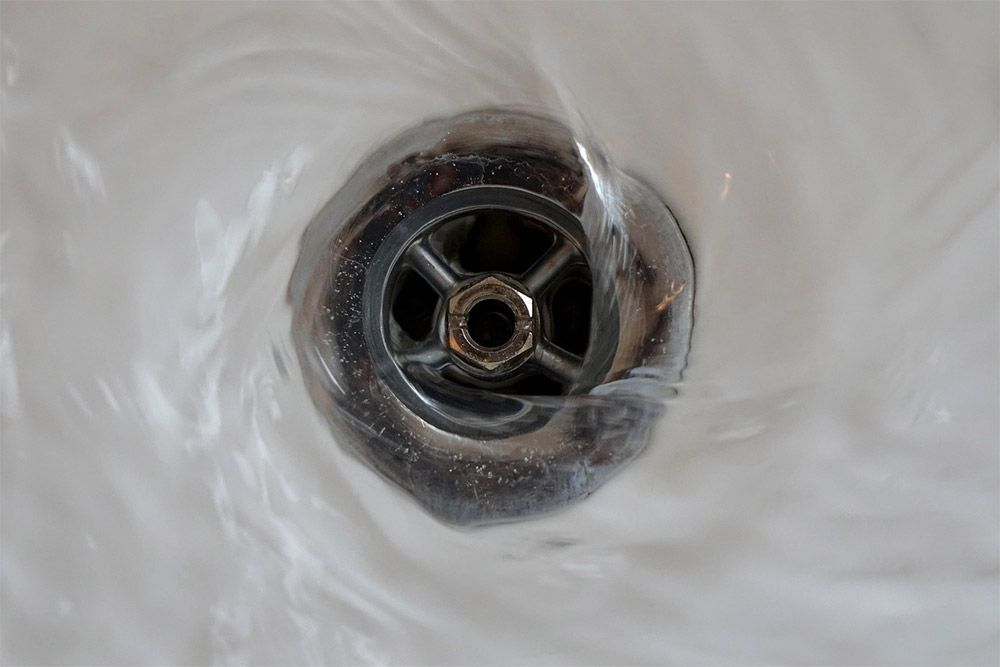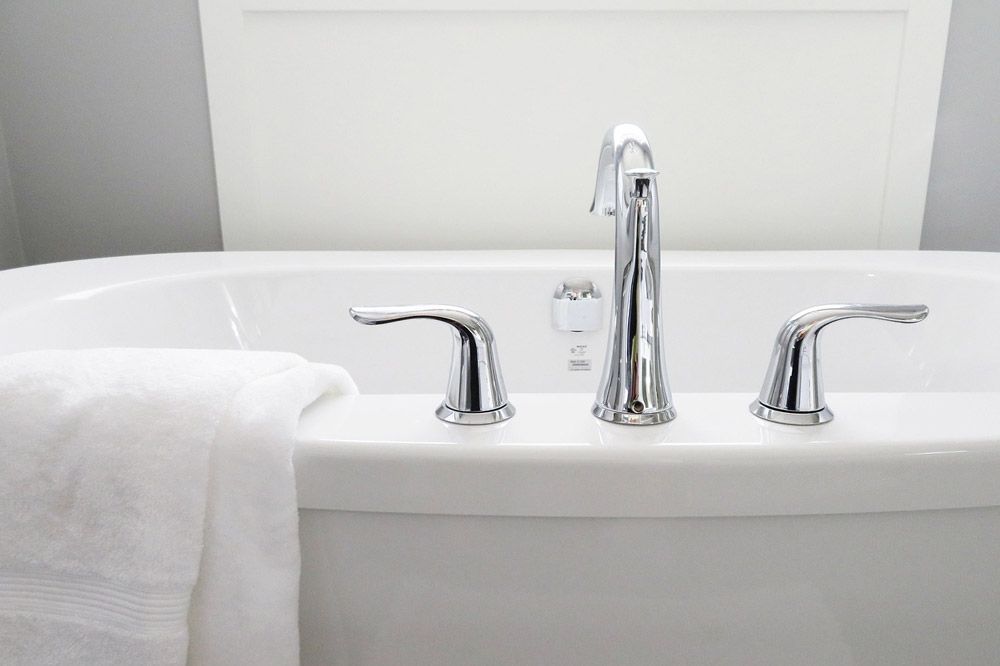What’s the Best Way to Remove Hard Water Stains
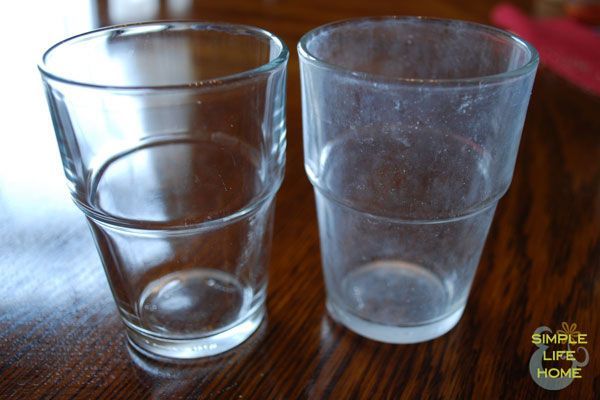
When it comes to hard water stains, homeowners may reach for commercial cleaners or DIY solutions. However, if the stains are persistent or widespread, it may be time to call in the professionals. At Afford A Rooter Plumbing, we understand the frustration of tough stains and have the expertise and tools to remove them effectively. Our plumbers use specialized cleaning products and equipment to break down and remove hard water stains from various surfaces, such as sinks, toilets, and showers. We also offer preventive solutions along with vinegar & baking soda to keep your home free from future stains. Trust us to restore the look of your home and provide long-term solutions to your hard water problems.
Best Way to get Hard Water Stains off Glass
Hard water, a common problem in many areas, can leave unsightly stains on glass surfaces. Thankfully, there are many solutions available, but how do you know which one is the best? At Afford A Rooter Plumbing, we believe that prevention is key but we know that sometimes stains just happen. Our team of professionals have tested and recommended using a homemade solution of equal parts vinegar and water, and a soft sponge or cloth to scrub the surface. For more stubborn stains, we recommend using a commercial cleaner specifically designed for hard water stains. No matter the severity of the stain, we strongly advise against using harsh chemicals or abrasive pads, as these can cause damage to the glass. Trust our experience and knowledge and say goodbye to hard water stains on your glass surfaces today.
Best Way to Clean Glass Shower Doors with Hard Water Stains
Glass shower doors add an elegant touch to any bathroom. However, hard water stains can be a notorious problem for Denver homeowners. If left unaddressed, these stains can build up and make your shower doors appear dull and unattractive. Fortunately, there's a solution that can help keep your shower sparkling clean. The best way to clean glass shower doors with hard water stains is by calling in Afford A Rooter Plumbing. Our skilled master plumbers have the expertise to remove even the most stubborn stains, leaving your shower doors looking like new. With our range of eco-friendly cleaning solutions and state-of-the-art equipment, we can ensure a high-quality service that's both effective and environmentally friendly. So why wait? Contact
Afford A Rooter Plumbing today to book your glass shower cleaning service and take the first step towards a cleaner, more beautiful Denver bathroom.
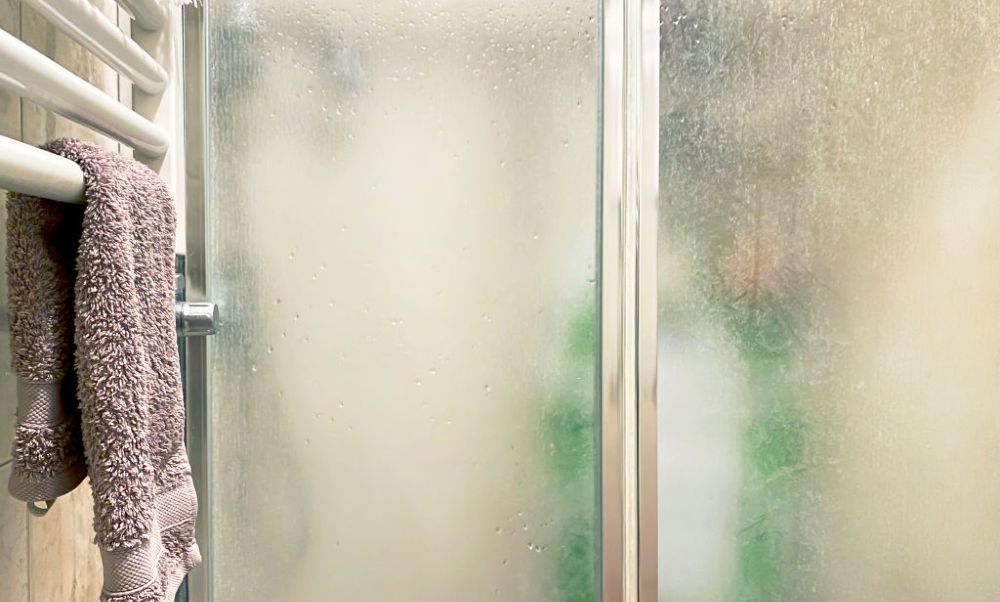
What Removes Hard Water Stains from Glass Shower Doors
Hard water stains on glass shower doors can be a frustrating sight for homeowners. Fortunately, there are effective ways to remove them and restore the crystal-clear appearance of the door. As a professional plumbing company, Afford A Rooter Plumbing recommends simple yet effective solutions for eliminating hard water stains. Our team suggests using white vinegar, baking soda, and a gentle scouring pad to scrub away the buildup of minerals and stains on the glass. Alternatively, you can also invest in cleaning products specifically designed to target hard water stains. By following these tips, you can achieve a sparkling clean glass shower door without investing in expensive replacements or hiring professionals. At Afford A Rooter Plumbing, we are committed to providing helpful guidance and solutions to our valued clients.
How To Clean Hard Water Stains in Shower
Maintaining a clean and fresh bathroom is key to feeling comfortable in your home. However, hard water stains can be a stubborn and unsightly issue that plagues many homeowners. If you're struggling to find a solution, look no further than Afford A Rooter Plumbing's expert tips on how to clean hard water stains in the shower. Our team of professionals recommends using white vinegar and baking soda to effectively eradicate these stains. With our tried-and-true methods, you'll be able to enjoy a spotless and sparkling shower in no time. Trust the experts at Afford A Rooter Plumbing to help you tackle even the toughest cleaning challenges.
Best Way to Get Rid of Hard Water Stains
Hard water stains can be a persistent nuisance for Denver homeowners and commercial property managers. If left unaddressed, they can not only damage surfaces but also leave an unsightly appearance that detracts from the aesthetic appeal of the property. Therefore, it is essential to find the best way to get rid of these stains. At Afford A Rooter Plumbing, we provide professional Denver plumbing services that can help you get rid of hard water stains. Our team of Denver Plumbing experts can assess the extent of the damage and recommend appropriate solutions that will restore your surfaces to their pristine condition. We use the latest techniques and equipment to ensure that the job is done effectively and efficiently. Trust us to provide the best way to get rid of hard water stains and enhance the appearance of your Denver property.
How to Clean Hard Water Stains
Hard water stains can be a nuisance to deal with in any household. Luckily, with the help of professional plumbing services like Afford A Rooter Plumbing, you can learn how to clean hard water stains in a snap. Traditional cleaning methods like vinegar and baking soda may work temporarily, but they often do not have the lasting power to remove all stains. Professional plumbers can offer specialized cleaning solutions that are tailor-made to combat hard water stains. With their expertise and specialized equipment, Afford A Rooter Plumbing can help transform the unsightly stains in your sinks and showers into sparkling fixtures once again. Don't let hard water stains bring down the overall aesthetic of your home any longer - contact Afford A Rooter Plumbing today for a cleaner, more refreshing living space.
When it comes to cleaning tough hard water stains, finding the best hard water stain remover can make all the difference. As a professional cleaner, I have tested numerous products and can confidently say that the best hard water stain remover on the market is formulated with a combination of acidic compounds and surfactants. These powerful ingredients effectively break down and dissolve the mineral deposits that cause unsightly stains on glass, tile, and other surfaces. With regular use, the right hard water stain remover can restore the shine and luster to your home or office's surfaces. Don't settle for a mediocre product – invest in the best hard water stain remover to get the results you deserve.
Best Hard Water Stain Remover
Hard water stains can be a real pain to deal with, especially if you've tried every store-bought cleaner on the market with little success. Fortunately, the team at Afford A Rooter Plumbing has developed the best hard water stain remover on the market. Proven to tackle even the toughest stains, this product will leave your surfaces looking new. With years of experience in plumbing, the experts at Afford A Rooter Plumbing understand the importance of having a powerful and effective cleaning solution. Don't waste any more time and money on ineffective products. Trust the professionals and try out the best hard water stain remover by Afford A Rooter Plumbing today.
What Removes Hard Water Stains
At Afford A Rooter Plumbing, we understand the frustration that comes with hard water stains and the difficulty of getting rid of them. That's why we offer effective solutions to ensure your property remains free of unsightly hard water stains. Whether it is rust, minerals or other contaminants, our team of Denver plumbing experts can help identify and eliminate any hard water stains. We use state-of-the-art technology and specialized equipment to provide you with long-lasting and efficient results. Our experienced master plumbers provide the best possible service and delivering quality solutions that meet your needs. Trust Afford A Rooter Plumbing to promptly and effectively remove hard water stains and restore the appearance of your property.
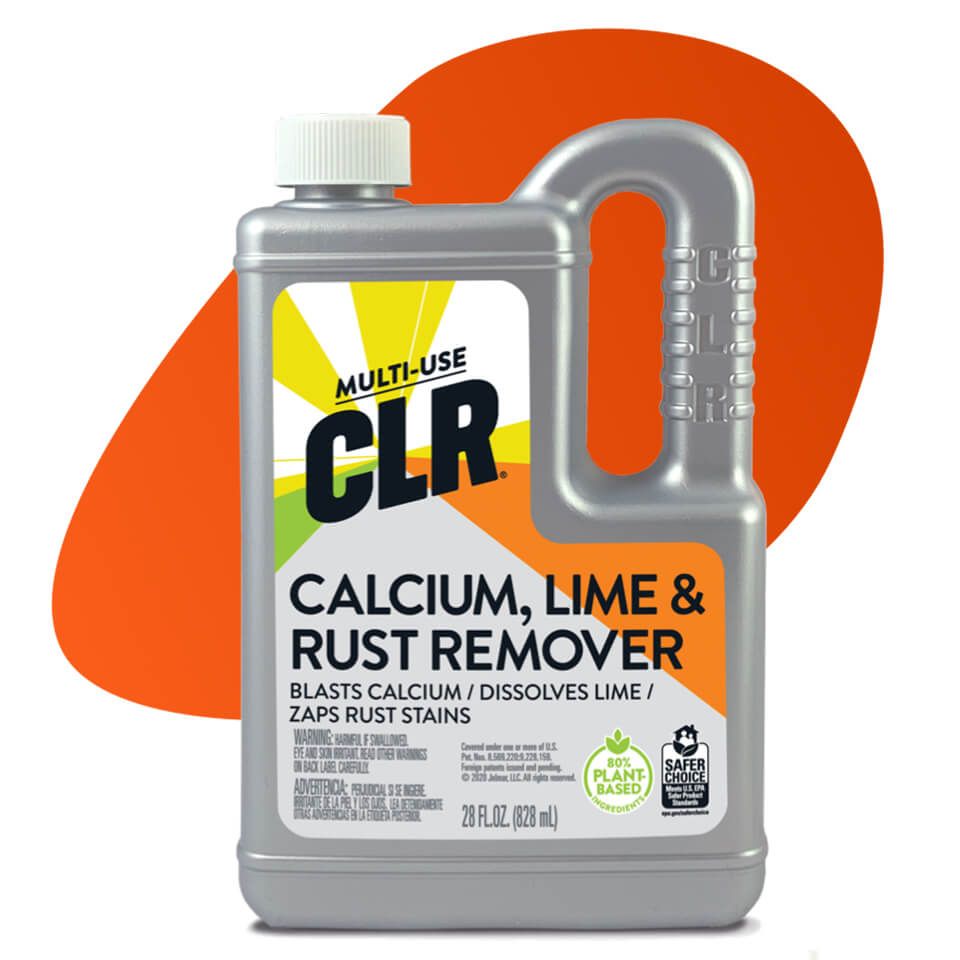
Does CLR Remove Hard Water Stains
When it comes to hard water stains, CLR has become a household name in the world of cleaning products. But does CLR actually remove hard water stains? The short answer is yes. CLR is specially formulated to break down calcium, lime, and rust buildup, making it an effective solution for getting rid of hard water stains. Its powerful formula can tackle tough stains on surfaces like glass, tile, and fixtures. However, it's important to follow the instructions on the label and use the product as directed to ensure maximum results. With CLR on your cleaning arsenal, you can say goodbye to unsightly hard water stains and hello to a sparkling, clean home.
Best Way Remove with Hard Water Stains from Windows
Hard water stains on windows can be a real eyesore, diminishing the overall appearance of a building or home. Afford A Rooter Plumbing says, while some may resort to using harsh chemicals or abrasive materials to remove these stains, the best way to effectively eliminate hard water stains from windows is by using a few simple household items. White vinegar and baking soda mixed together can create a powerful stain-fighting solution that is safe for both the environment and your windows. Gently scrubbing the solution onto the affected areas and then rinsing it off with warm water can effectively remove these stubborn stains without causing any damage to your windows. So, if you're struggling to remove hard water stains from your windows, give this natural cleaning method a try and see the difference it can make.
Best Way to Remove with Hard Water Stains from Stainless Steel Sink
Stainless steel sinks are a popular choice for many homeowners due to their durability and sleek appearance. However, hard water stains can quickly tarnish their shiny surface. When it comes to removing hard water stains from your stainless-steel sink, you want a method that is both effective and safe. As experts in the plumbing industry, Afford A Rooter Plumbing has found the best way to remove hard water stains from stainless steel sinks. Our professional and proven method involves using a mixture of white vinegar, baking soda, and a soft cloth. This simple and affordable solution will leave your sink sparkling clean without damaging the stainless steel. Trust the Denver plumbing experts at Afford A Rooter Plumbing for all your Denver plumbing needs, including removing hard water stains from your stainless steel sink.
Best Way to Remove Hard Water Stains from Toilet Bowl
Hard water stains can be a frustrating issue for homeowners who want their bathrooms to look clean and sparkling. At Afford A Rooter Plumbing, we understand that removing these stains can feel like an uphill battle. However, our experts are here to help you find the best solution for your toilet bowl. We recommend using a combination of vinegar and baking soda, as well as a pumice stone for tough stains that won't budge. With our proven techniques and years of experience, you can trust us to tackle even the most stubborn hard water stains. Say goodbye to unsightly discoloration and hello to a toilet bowl that shines like new!
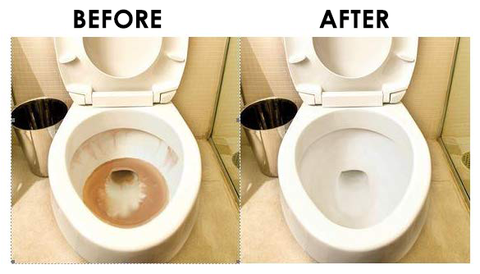
How To Clean a Toilet with Hard Water Stains
If you've ever struggled with hard water stains on your toilet, you know how frustrating it can be to get rid of them. Luckily, Afford A Rooter Plumbing has some tips to make the cleaning process much easier. First, turn off the water supply to the toilet and flush it to drain the tank and bowl. Then, apply a solution of vinegar and baking soda directly onto the stains. Let it sit for at least 30 minutes before scrubbing the bowl with a toilet brush. For stubborn stains, you may need to repeat the process or use a commercial cleaner specifically designed for hard water stains. Don't let hard water stains ruin the appearance of your bathroom any longer – give these tips a try and restore your toilet to its former glory.
How To Get Hard Water Stains Out of Toilet
Hard water stains in your toilet can be unsightly, and even worse, can harbor bacteria and odor causing germs over time. If you're struggling with this issue, we at Afford A Rooter Plumbing have some helpful tips to get your toilet looking clean and fresh again. First, use a pumice stone or scrub brush with a mixture of baking soda and vinegar to break down the mineral buildup. Then, follow up with a commercial toilet bowl cleaner containing hydrochloric acid, being sure to wear gloves and safety goggles as directed. If you're still seeing stains, give us a call and we'll be happy to assist with any necessary repairs or replacements. Don't let hard water stains get the best of you - with a little know-how and the right tools, you can have a sparkling clean toilet in no time.
Does WD-40 Remove Hard Water Stains in Toilet
When it comes to keeping the bathroom clean, hard water stains in the toilet can be a frustrating and unsightly problem. Many homeowners have tried various cleaning methods, but they often find that the stains are stubborn and hard to remove. This is where WD-40 comes in. It has been suggested that WD-40 can be an effective solution for removing hard water stains in the toilet. However, before trying this method, it's important to get advice from professional plumbers like Afford A Rooter Plumbing. They have extensive experience dealing with plumbing issues and can provide guidance on the best way to tackle the problem. So, does WD-40 remove hard water stains in the toilet? Consulting with professionals like Afford A Rooter Plumbing can give you the answer you need, as well as help you find a solution that is safe and effective for your home.
How To Remove Hard Water Stains from Plastic
If you're dealing with hard water stains on your plastic surfaces, there are effective ways to get rid of them. Hard water stains can be stubborn, but with the right approach, you can restore the pristine look of your plastic. Common household items such as white vinegar, baking soda, and lemon juice can work wonders in removing hard water stains. For a deeper clean, specialized cleaning agents such as CLR or Lime-A-Way could also be employed. It's important to follow manufacturer instructions and take necessary safety precautions when using cleaning agents. With these methods, you can say goodbye to those pesky hard water stains and enjoy the fresh look of your plastic surfaces in no time.
How To Remove with Hard Water Stains from Granite
Hard water stains are a common concern for granite owners, as they can make your once lustrous countertops look dull and unsightly. But fear not, as there are solutions available to help you effectively remove these stubborn stains. Start by creating a cleaning solution comprised of equal parts baking soda and water. Apply the paste onto the affected area and let it sit for 10-15 minutes before gently scrubbing with a soft-bristled brush. Rinse with warm water and repeat as necessary until the stain is lifted. You can also try using a specialized granite cleaner or contacting a professional for more severe cases. By using these techniques, you can restore your granite to its original brilliance and enjoy sparkling clean countertops.
At Afford A Rooter Plumbing, we understand the frustration and stress that comes with a plumbing issues like hard water stains in Denver, CO. That's why we're here to help. Our team of professional master plumbers are available 24/7 to provide prompt and reliable plumbing services. Whether you're dealing with a burst pipe, a clogged drain, or any other urgent emergency plumbing issue, we have the experience and expertise to fix the problem quickly and efficiently. Don't wait until it's too late - call us today and let us take care of your plumbing problem call 720-296-7972.
w Paragraph
The Afford-a-Rooter Plumbing Repair Guarantee
24/7 Immediate Response
Certified Emergency Plumbing Service Professionals
Affordable, High-Quality Services
Recent Blog Post
